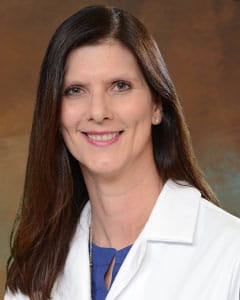Finding the Right Words: How to Talk to a Loved One Diagnosed with Cancer
Nearly 1.7 million new cancer cases will be diagnosed in the U.S. this year, which means millions of families will have to grapple with this disease.
When a loved one is diagnosed with cancer, it can be difficult to know what to say. Everyone copes with cancer differently, and the journey can include a range of physical and emotional changes, from hair and weight loss to depression, sadness and feelings of despair. When someone you love is experiencing all these things, being supportive is crucial. How you communicate that support is even more important. Here are some things to keep in mind:
Don’t Stay Silent
When someone is facing a life-threatening illness, we may think it’s best not to say anything at all, out of fear of saying the wrong thing.
But staying silent, avoiding the person or ignoring what’s happening may make your loved one feel unsupported. Being diagnosed with cancer can be a very solitary and lonely experience, so it’s important to show up for a friend or family member who is dealing with this diagnosis. You can do this in several ways, whether it’s dropping by to check in, sending a card with encouraging words or just calling to let the person know that you’re there for them whenever they need support or a kind word.
Focus on Life, Not Death
Negativity can add stress to an already stressful situation. Instead of focusing solely on the diagnosis or the worse-case scenario, be positive and focus on life instead of death. One San Diego State University researcher who has spent years studying cancer communication, says sharing stories and memories can help patients and their families better cope with a diagnosis.
"If you hear someone has been diagnosed with cancer, our natural inclination tends to be to think of it as a death sentence," Wayne Beach, a professor of communication at San Diego State University, said in a university news release.
It’s important for people who are diagnosed to have ongoing communication, and that this can make them feel empowered, Beach also said.
"How family members communicate when coping [with a diagnosis] is important,” he said. “Cancer patients do cope and heal better depending on their communication within their families. Without this proper communication, these patients don't heal as well or as long. Having a dysfunctional environment around you is not good, it's stressful."
Be a Good Listener
And while communication is important, so is listening. Sometimes all your loved one wants to do is share thoughts about his or her diagnosis and cancer journey — without any opinions, endless questions or having to consider other people’s feelings. You can show your support by just being there to listen and by giving them your complete attention.
Don’t Compare and Don’t Be Preachy
Many of us know someone who has had or died from cancer, but sharing this information with your loved one may not be that helpful. Cancer comes in all forms, types and stages, and while one person with the disease may be able to carry on much of their routine, another person may find it more difficult to physically and emotionally cope. Keep these comparisons to yourself, as they may frustrate your loved one.
Also avoid being preachy or sharing unwanted or unasked for advice, whether it’s about diet, lifestyle or different treatment approaches. Don’t share your opinion about these things unless your friend or family member specifically asks for it.
Follow the Person’s Lead
Cancer is different for every person. While some people will want to have multiple conversations about their diagnosis and treatment, others may not feel ready to talk about it in detail or at all. In these situations, it’s so important to follow the person’s lead. If they open up, be there to listen and ask them if it’s okay for you to ask follow-up questions. Explain to them that you want to learn more, because it’ll help you better support them. But if someone clearly isn’t comfortable talking about their disease, give them the space to decide when, where and how much they want to share or communicate.
Cancer touches almost everyone. About three out of four families have at least one cancer survivor, according to the American Cancer Society, so many of us will one day be in a situation where we must support someone with this disease. Communication is key to being there for a loved one facing this diagnosis, but finding the right words is difficult for many of us. If you don’t know what to say, just be there to listen and offer your unwavering support. That’s always a good place to start.
Are you interested in learning more about the Orlando Health Cancer Institute Integrative Medicine program?
The Integrative Medicine program is an international non-profit dedicated to providing support, education, and hope to people affected by cancer for over 30 years. Orlando Health believes that conventional western medicine is the best approach to combat cancer and other diseases, but there are complementary paths to aid healing by treating the whole person in a cohesive balance of mind, body, and spirit. As part of this initiative to treat the whole person, we are pleased to announce that we have become an official affiliate of the Integrative Medicine program.
Learn More


